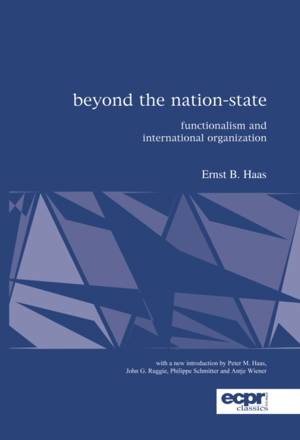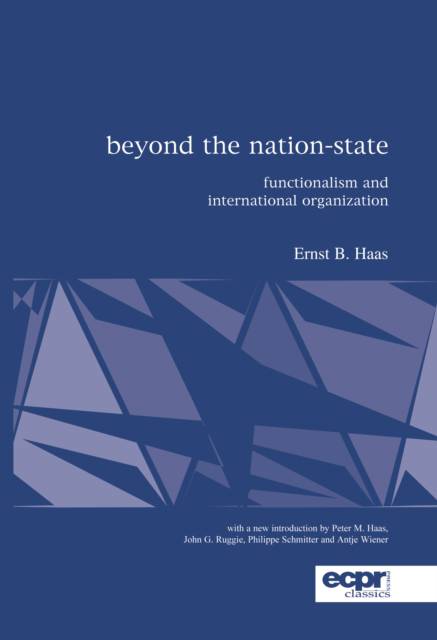
- Afhalen na 1 uur in een winkel met voorraad
- Gratis thuislevering in België vanaf € 30
- Ruim aanbod met 7 miljoen producten
- Afhalen na 1 uur in een winkel met voorraad
- Gratis thuislevering in België vanaf € 30
- Ruim aanbod met 7 miljoen producten
Zoeken
€ 69,95
+ 139 punten
Omschrijving
Of all of the books produced by Ernst B Haas during his career, Beyond the Nation State contains the most complete and definitive statement of 'neo-functionalism': the theory of trans-national integration for which he is best known. Focusing on the International Labor Organization (ILO), Beyond the Nation-State was one of the first efforts to analyse systematically the dynamics and effects of a global international institution. This book is regarded as a classic in comparative politics, international relations and amongst students of European Integration and has enjoyed a renaissance with the end of the cold war, reinvigorated European integration, resumed interest in communitarian theorising, and efforts to theorise about forms of global governance which relied on a heightened role for international institutions and their associated policy communities. First published in 1964, this book was part of larger project described by others as 'neofunctionalism', 'regional integration', and 'soft constructivism', which animated Haas throughout his career. Beyond the Nation-State continues to provide valuable guidelines for describing and understanding contemporary IR, and is re-issued with a new introduction by Peter M. Haas, John G. Ruggie, Philippe Schmitter and Antje Wiener, placing this important work in a current context.
Specificaties
Betrokkenen
- Auteur(s):
- Uitgeverij:
Inhoud
- Aantal bladzijden:
- 584
- Taal:
- Engels
- Reeks:
Eigenschappen
- Productcode (EAN):
- 9780955248870
- Verschijningsdatum:
- 1/11/2009
- Uitvoering:
- Paperback
- Formaat:
- Trade paperback (VS)
- Afmetingen:
- 152 mm x 231 mm
- Gewicht:
- 929 g

Alleen bij Standaard Boekhandel
+ 139 punten op je klantenkaart van Standaard Boekhandel
Beoordelingen
We publiceren alleen reviews die voldoen aan de voorwaarden voor reviews. Bekijk onze voorwaarden voor reviews.











